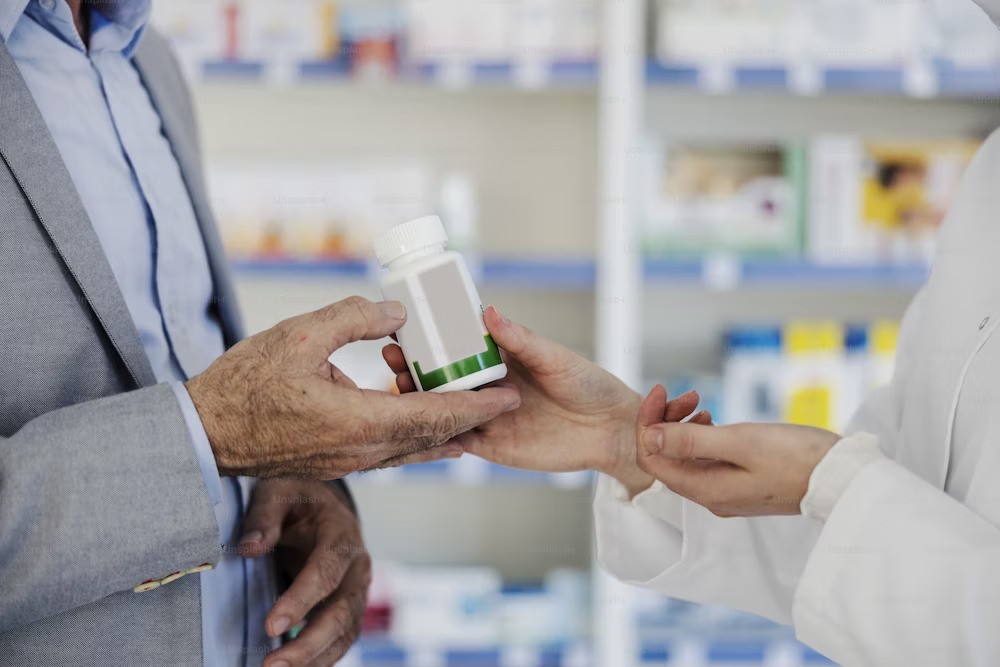Recreational Drug Effects On Health - The Price Of Pleasure
However, the impact of these drugs on health is profound and multifaceted, affecting every system in the body. This article aims to shed light on recreational drug effects on health.
Author:Katharine TateReviewer:Karan EmeryMar 07, 20248K Shares107.6K Views

In today’s world, the use of recreational drugs has become a widespread issue, touching the lives of many across the globe. These substances, ranging from alcohol and marijuana to more potent substances like cocaine and heroin, are used for their psychoactive effects, offering an escape from reality, enhanced feelings of pleasure, or a sense of belonging. However, the impact of these drugs on health is profound and multifaceted, affecting every system in the body. This article aims to shed light on recreational drug effects on health.
What Are Recreational Drugs?
Recreational drugs are substances taken for enjoyment rather than for medical reasons. They alter the way your mind or body works. Some are legal, like alcohol and tobacco, while others, including cannabis (in some places), ecstasy, and cocaine, are illegal in many countries.
5 Common Recreational Drugs
1. Alcohol
Alcohol stands as one of the most prevalent recreational drugs, with its consumption often resulting in immediate consequences such as compromised coordination, impaired judgment, and a heightened susceptibility to accidents. However, the enduring effects of prolonged and excessive alcohol intake paint a graver picture, encompassing a spectrum of health ailments.
Chronic alcohol abuse can ravage the liver, leading to conditions like cirrhosis and liver failure, while also wreaking havoc on cardiovascular health, potentially culminating in heart disease and hypertension. Furthermore, the insidious nature of alcohol extends its reach to oncological realms, elevating the risk of certain cancers, including those of the liver, breast, and digestive tract.
2. Tobacco
Tobacco use, particularly in the form of smoking, has entrenched itself as a pervasive habit with far-reaching health implications. Renowned for its role in precipitating lung cancer, smoking tobacco unveils a more extensive portfolio of perilous outcomes. Beyond the ominous specter of lung malignancies, individuals who engage in tobacco consumption elevate their susceptibility to heart disease, as the toxic cocktail of chemicals in tobacco smoke exerts adverse effects on the cardiovascular system.
Stroke emerges as another ominous risk, further complicating the health landscape for tobacco users. Additionally, the pervasive impact extends to chronic lung diseases, where the inhalation of noxious smoke becomes a catalyst for conditions such as chronic obstructive pulmonary disease (COPD).
Remarkably, the hazards of tobacco extend beyond its primary consumers, as even non-smokers exposed to the insidious tendrils of second-hand smoke find themselves entangled in the web of potential health risks.
3. Cannabis (Marijuana)
Cannabis, also known as marijuana, is liked by some people because it helps them relax and has medicinal purposes. But, it's important to know that using it can affect your memory in the short term, making it harder to remember things. It can also change the way you make decisions.
If you use it a lot over a long time, it might cause mental health problems like schizophrenia or make it difficult for your brain to work well, affecting how you think and understand things. So, while it has its good sides, using cannabis also comes with some risks that people should be aware of.
4. Cocaine
Cocaine, a stimulant, boosts the nervous system, providing a brief but intense surge of energy and euphoria. Despite these immediate effects, it's crucial to recognize the dark side of its allure. Cocaine is highly addictive, weaving a web that can ensnare users in a cycle of dependence. The toll on physical health is profound, with documented risks including heart attacks and strokes, casting a shadow over the exhilaration it initially provides. Equally concerning are the long-term mental health implications, as consistent use can pave the way for anxiety and paranoia, painting a complex portrait of the consequences that accompany this potent stimulant.
5. Heroin
Heroin, classified as an opiate, is sought after for its potent ability to induce intense relaxation and pleasure. However, the enticing effects of this drug come hand in hand with severe risks that paint a grim picture. One of the most alarming aspects is its highly addictive nature, often leading individuals down a perilous path of dependency. The specter of overdose looms large, presenting an imminent threat to life.
Yet, the consequences extend beyond the immediate, encompassing severe health issues such as infections of the heart lining, lung disease, and the potential for long-term damage to vital organs like the liver and kidneys. The pursuit of momentary bliss with heroin comes at a staggering cost to one's overall health and well-being.
How Do They Affect Health?
The effects of recreational drugs on health can be divided into short-term and long-term impacts, affecting both physical and mental health.
Short-term Effects
- Feeling High -This is the immediate sensation most users seek. It can vary from energy bursts and euphoria to relaxation and tranquility, depending on the drug.
- Impaired Judgment -Drugs can cloud your thinking, leading to poor decision-making and risky behaviors.
- Overdose Risks -Taking too much of a drug can lead to overdose, causing life-threatening conditions like heart attack, stroke, or respiratory failure.
Long-term Effects
- Addiction -Repeated use of drugs can lead to dependence, where you feel unable to function normally without the drug.
- Mental Health Issues -Drugs can exacerbate or trigger mental health problems, such as depression, anxiety, or psychosis.
- Physical Health Problems -Long-term use can harm the heart, liver, brain, and other organs, leading to chronic diseases or conditions.
How To Minimize The Risks
- Education -Understanding the risks associated with drug use can deter experimentation and addiction.
- Support Systems -Friends, family, and professional help can provide the support needed to overcome addiction.
- Healthy Alternatives -Engaging in hobbies, sports, and social activities can fulfill the need for relaxation and pleasure without resorting to drugs.
Recreational Drug Effects On Health - FAQs
What Are The Most Common Side Effects Of All Drugs?
Perhaps the most common set of side effects for drugs that work inside your body involves the gastrointestinal system. Nearly any drug can cause nausea or an upset stomach, though it may only happen to a handful of people. For drugs used on the outside, skin irritation is a common complaint.
What Is The Impact Of Recreational Drugs?
They can affect the way you see and experience things, your mood and your behaviour. The effects of recreational drugs might feel pleasant or unpleasant. They may last for a short time or a longer period. Some effects may continue after the drug itself has worn off.
What Are The Causes Of Recreational Drugs?
They are interested in experimenting with the effects, and seeing what happens when they take drugs. They may feel drugs give them new experiences or perspectives. They make them feel more relaxed, or more confident when relating to others. They may feel drugs help them forget their worries or problems.
Final Thoughts
The allure of recreational drugs is often rooted in their ability to alter reality, provide pleasure, or offer an escape from life’s pressures. However, recreational drug effects on health can be dire, affecting every aspect of an individual's life. From immediate effects like overdose and impaired judgment to long-term impacts like addiction and chronic health conditions, the cost of drug use is high.
While the journey to overcoming addiction and minimizing the risks associated with drug use is challenging, it is essential for a healthier, fulfilling life. Awareness, education, and seeking help are critical steps in protecting oneself and loved ones from the detrimental effects of recreational drugs on health.

Katharine Tate
Author

Karan Emery
Reviewer
Latest Articles
Popular Articles
